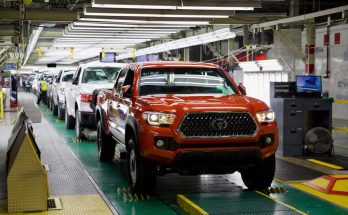By Comunicación Social MX
Mexico’s Plenary of the Chamber of Senators unanimously approved mining reforms. They will regulate granting, maintaining, supervising, and terminating mining and water concessions for industrial use, and give powers to the State over the nation’s mineral and water resources.
According to these changes, branch offices “will only grant mining concessions through a public bidding process that guarantees the State the best economic conditions and benefits for the public, as well as carries out actions to preserve, restore, and improve the environment and prevents and controls air, water, soil, and subsoil pollution in accordance with the applicable provisions.”
The new law specifies that a concession title must be delivered to whoever wins the bid, preceded by processing environmental, labor, energy, social authorizations and permits, and any other requirements that must be processed federally. This is in addition to the water concession for industrial use in the corresponding mining industry in accordance with current regulations.
DHL Supply Chain Mexico Presents Its New Electric Fleet
By Elenne Castro
DHL Supply Chain Mexico introduced its new fleet of electric vehicles, which are part of its strategy to achieve zero emissions by 2050. During the presentation at the E-commerce Delivery Summit at The Logistics World, Juan Carlos Aderman, DHL Supply Chain vice president of Transport in Mexico and Latin America, spoke. He pointed out that this acquisition is expected to reduce 1.5 kilotons of CO2. This is part of DHL’s comprehensive strategy for caring for the environment. “These new van-type specification trucks have a range of up to 170 km and a speed of 110 km per hour, with a load capacity of up to two tons, and will serve the Health Care, Retail, Consumption, and Technology sectors, mainly in the last mile.”
Vehicle Congestion Eats Up Half a Year of Transport Users’ Lives
By Israel Molina
The founder and honorary president of the Mexican Association of Transport and Mobility (AMTM), Jesús Padilla Zenteno, stated that traffic congestion takes a toll on drivers, specifically about half a year of time they could use otherwise, and costs the country more than 100 million pesos annually. This translates into a loss of family time.
During the 14th International Transport Congress, which brought specialists from Mexico and the world together, Padilla Zenteno stressed that «we must work hard on this because today traffic congestion kills, and in this sense the challenge is to achieve green mobility.» This work, he said, should not be carried out by a person or institution, but by academia, industry, and the authorities.
The event was held at the Jaime Torres Bodet Cultural Center of the National Polytechnic Institute (IPN) in Mexico City. Zenteno commented that when transportation is improved, it improves the use of public space, reduces travel time, generates lower polluting emissions, and optimizes safety on board. He added, «It is good that the authorities demand a lot from us, because society is going to thank them.»




